A blast from the past. Cessna 182.
First plane I flew in with my dad and got basic pilot skills and lots of “on the job” training.


A blast from the past. Cessna 182.
First plane I flew in with my dad and got basic pilot skills and lots of “on the job” training.
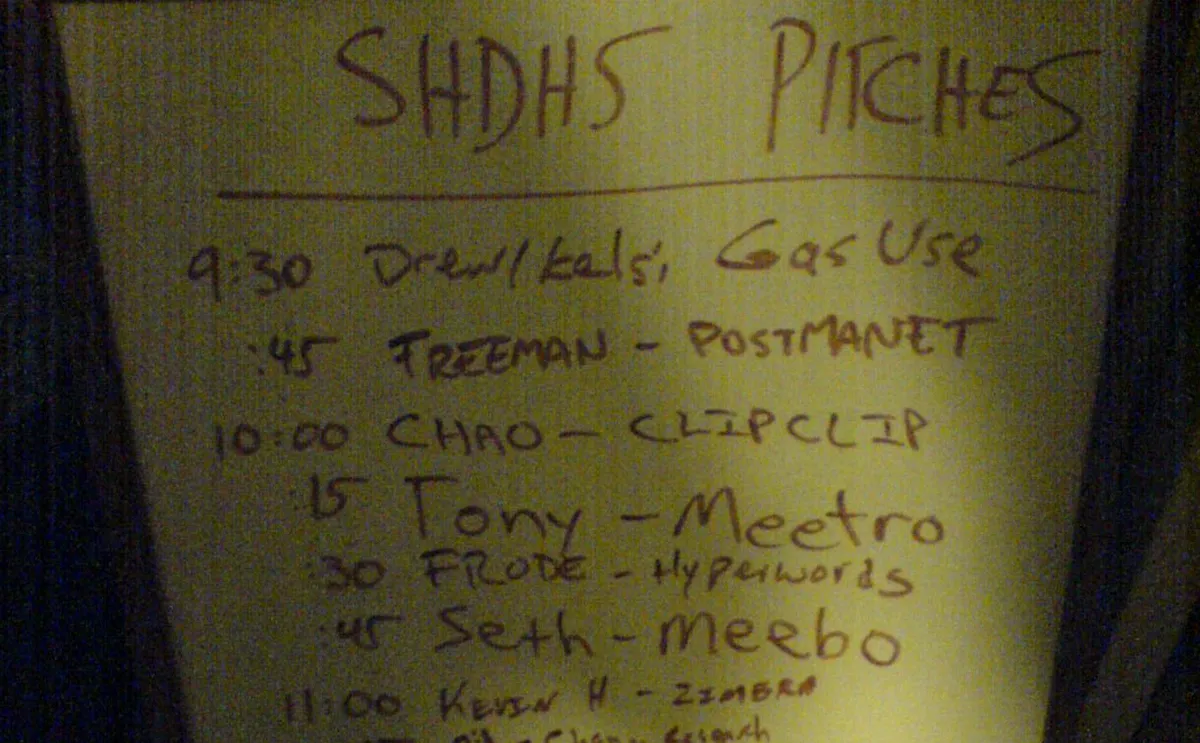
In the early 2000s, a remarkable community of creators, hackers, and dreamers gathered to share ideas, build new projects, and push the boundaries of technology at an event called SuperHappyDevHouse (SHDH). Jeff Lindsay and David Weekly founded SHDH as an equal parts hacker house, startup incubator, and social gathering. SHDH was where people came to write code, share stories, collaborate on ideas, and celebrate creativity in a relaxed and inspiring setting. The event felt like a hacker’s dream: tables piled with laptops, endless snacks, fast internet, and a vibrant, encouraging atmosphere—an environment where the best ideas were nurtured and collaboration flourished.
SuperHappyDevHouse events were organized regularly, attracting people from all walks of life who were passionate about technology. There were no formal invitations—anyone interested could join, and the emphasis was always on collaboration and exploration. If you wanted to invite friends, the community even guided you on how to do it. You can check out the event listings here.
At SHDH5 on November 5th, 2005, I presented Zimbra, an experience that helped refine the product and connect to a network of brilliant minds. The talk was voted “Most marketable idea.”
Zimbra was acquired by Yahoo a few years later for $350M.
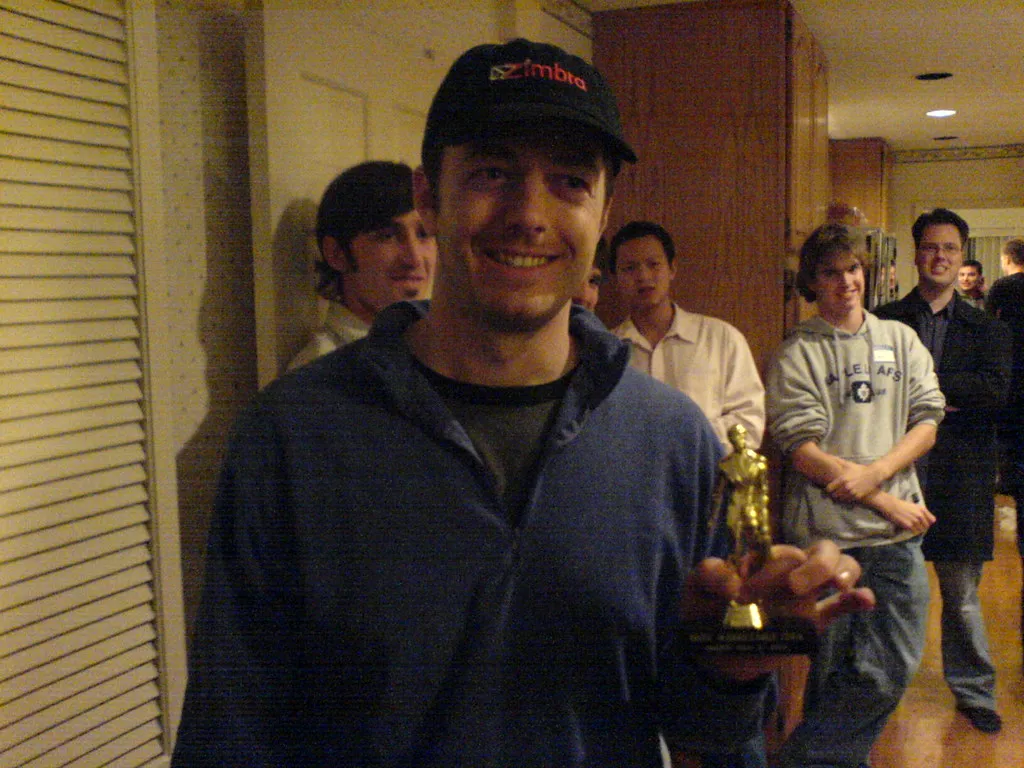
Photo by [Cal Henderson], who built Flickr and ran engineering there before becoming the founder and CTO of Slack.
Here’s the whole talk if you want to see it yourself.
There were many other talks that night, which you can see on the board.
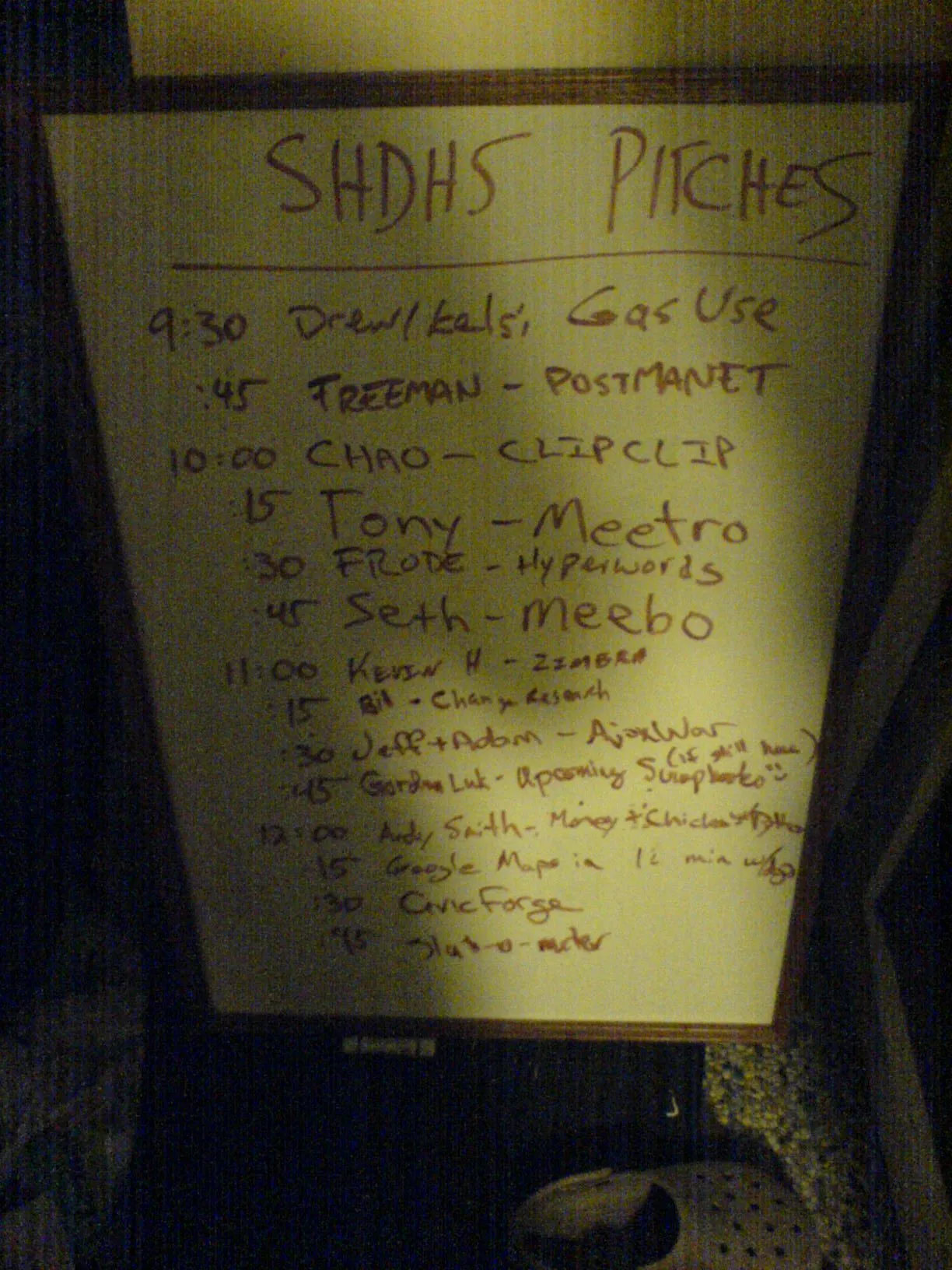
One of the other memorable talks at SHDH5 was by Seth Sternberg, who presented Meebo—a web-based chat platform that later became a big success and was eventually acquired by Google. Seth’s story was another example of how SHDH provided a platform for sharing ideas that would go on to make a huge impact.
Len Sassaman and Meredith L. Patterson were regular attendees at SHDH, fitting right into this culture of discovery and exploration. Meredith gave talks on language-theoretic security, a concept she became well known for. With his incredible insight into cryptography and privacy, Len was always keen to share and inspire. SHDH wasn’t just about working on the next big thing—it was about pushing each other to think differently, to take risks, and to help others learn along the way.
Len was a respected cryptographer and privacy advocate. He worked on significant projects like PGP encryption and was a dedicated researcher focused on making the internet safer. His work and his passion for privacy have led some to believe that he may have been involved in the creation of Bitcoin. There’s even an early interview with Len and Meredith just after the Bitcoin whitepaper (October 31, 2008) was published that provides insight into their thinking (and Len’s proposal).
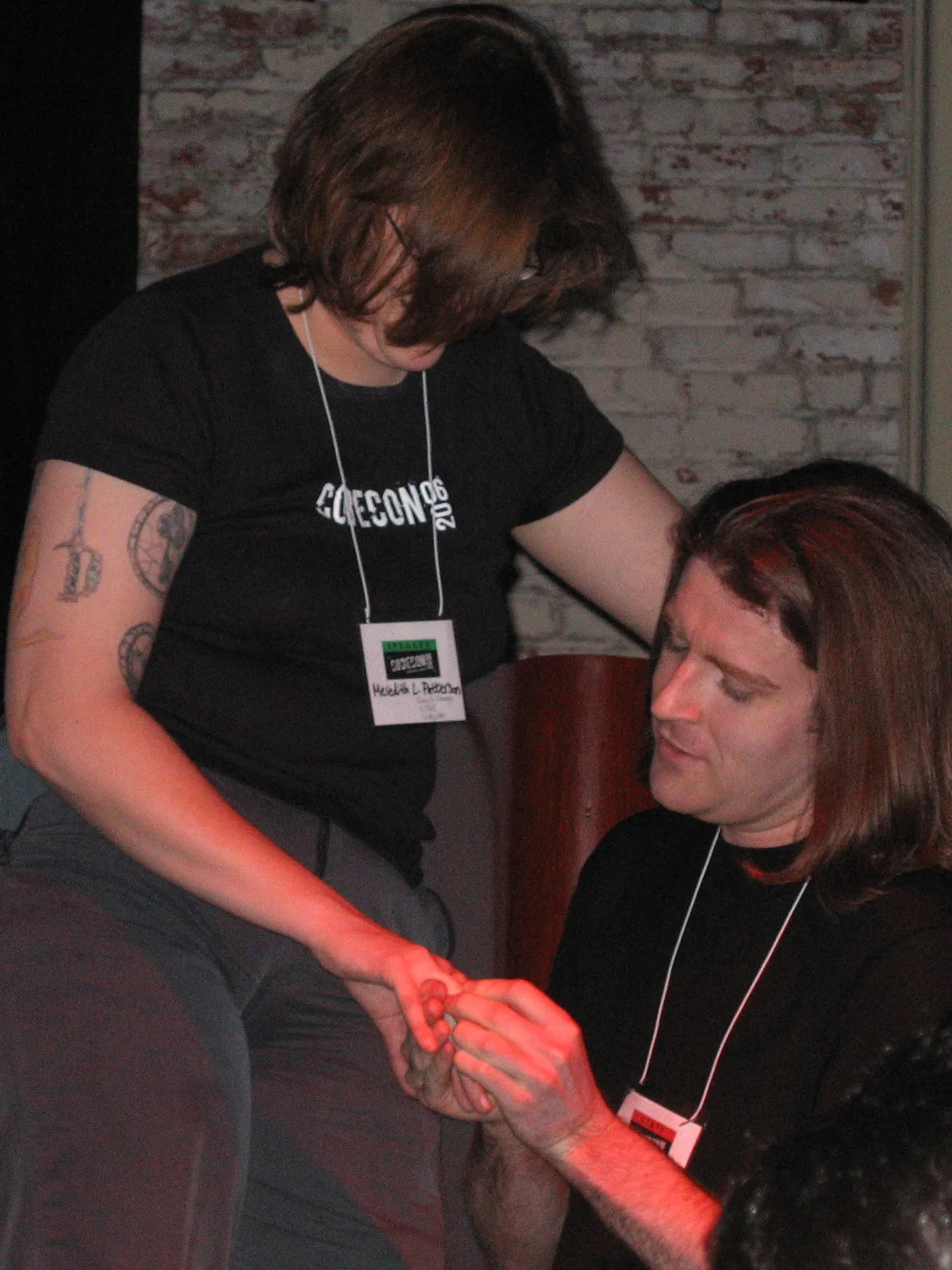
Meredith is a computer scientist and well-known advocate for language-theoretic security. She has significantly contributed to software security and was a prominent figure in promoting secure coding practices. Her expertise in analyzing and breaking insecure protocols made her a key player in the tech community. One of their last talks before Len passed can be found on Youtube, highlighting their ongoing commitment to technology and privacy.
Their dedication to fostering an open and cooperative culture was part of what made the event so special. SHDH didn’t need formal invitations or exclusive guest lists. It thrived on openness—people coming together to create and share. It was where you could walk in with nothing but an idea and leave with a community and, sometimes, the start of a lifelong project.
Seeing Len and Meredith’s recent spotlight in discussions about Satoshi Nakamoto—the anonymous creator of Bitcoin—was a powerful reminder of the kind of people who made SHDH what it was. The idea that someone from this community could have been responsible for creating something as transformative as Bitcoin speaks volumes about the spirit of these gatherings. Len and Meredith, with their deep understanding of cryptography, passion for privacy, and commitment to making the world a better place through technology, were precisely the kind of people who could have contributed to such an ambitious project.
Len and Meredith were emblematic of the best of SHDH—not just hackers but visionaries, driven by curiosity and an openness to sharing their knowledge. Len’s SHDH profile and Meredith’s SHDH profile give a glimpse into their personalities: approachable, intelligent, and always ready to make a difference.
Reflecting on my time at SHDH, it’s clear that events like these helped form the bedrock of today’s tech culture—places where ideas could be shared freely, creativity was celebrated, and people were empowered to think big. Len and Meredith were integral parts of that world, and their legacy continues to influence us today.
SuperHappyDevHouse may have been just a series of popup hacker gatherings, but it profoundly shaped many of us. It fostered a community culture that encouraged innovation and a belief that the best ideas could come from anyone, anywhere—as long as there was a table to sit at, a laptop to type on, and someone to share them with.
The recent theories about their involvement with Bitcoin only highlight how important these moments of collaboration, exploration, and community truly were.

I have no idea who HBO’s Money Electric: The Bitcoin Mystery plans to name Satoshi Nakamoto. It could be Len, or it could not.
Polymarket seems to be leaning toward its Len.
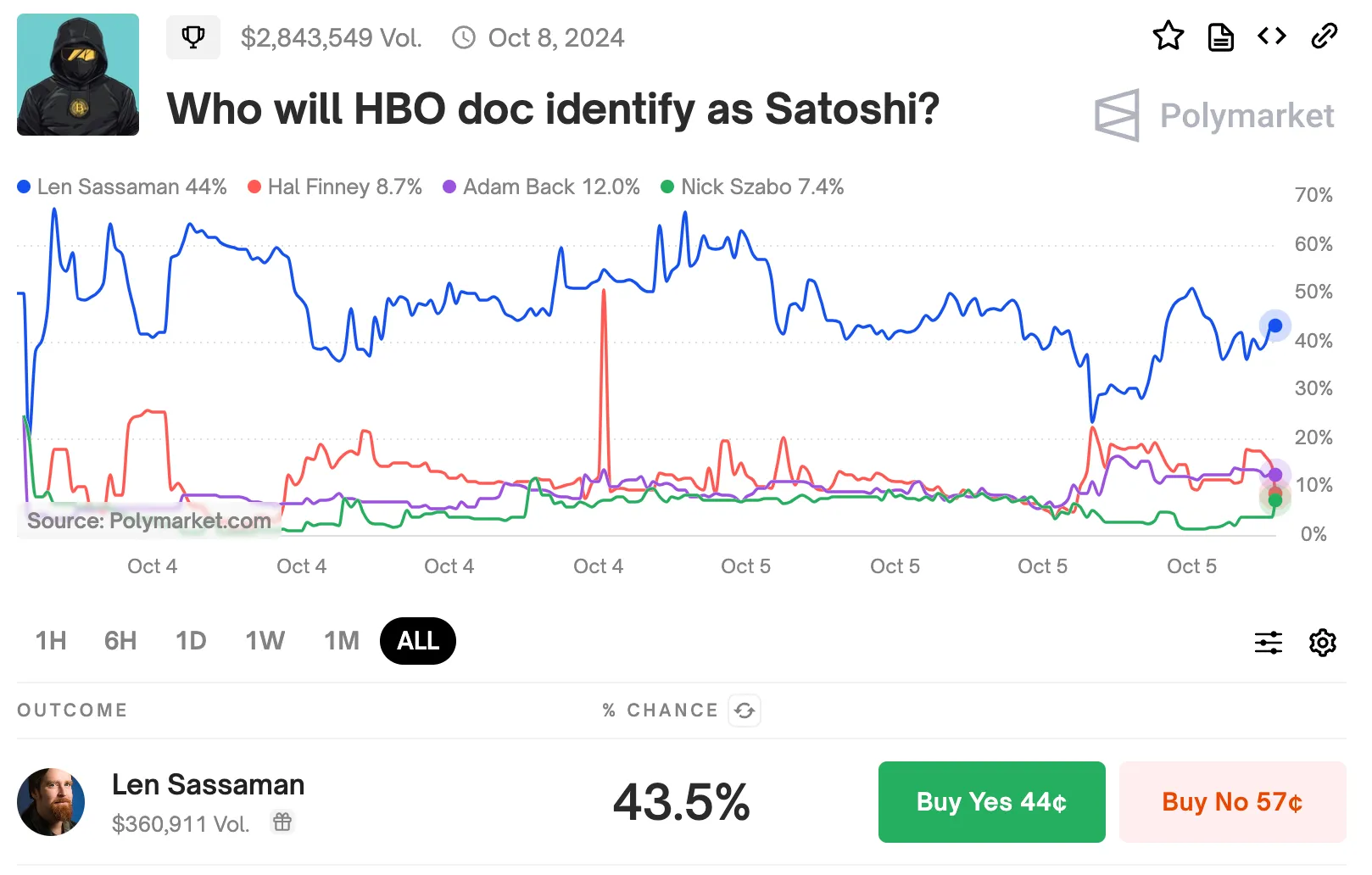
View Tweet

Disneyland has become an iconic American family retreat, drawing almost 20 million visitors from across the globe every year. There’s so much to see and do that even mere minutes become valuable, as you want to experience all of the magic and splendor that seems to only exist within those theme park gates.
However, facing the crowds of millions can make it challenging to do the simplest things, like move from point A to point B, especially when those two points feel like they are at complete opposite ends of the park itself. Visiting Disneyland is an exciting time for my kid, so I like to keep the momentum moving at her pace, while also decreasing as much of the adults’ stress as I can.
With a little bit of forethought and the useful apps and maps I mention below, removing a significant amount of stress from your visit to Disneyland is possible, opening up the opportunity to make warm memories your family will cherish for years. We utilize these tools and resources to make our entire trips to Disneyland much smoother.
 Most of the problems that cause significant hold-ups at Disneyland are unexpected and arbitrary; this is part of the reason that so many well-planned vacations can go awry quickly.
Most of the problems that cause significant hold-ups at Disneyland are unexpected and arbitrary; this is part of the reason that so many well-planned vacations can go awry quickly.
Stress is caused by a number of variables that can change at any moment. Weather forecasts are imprecise; park conditions are subject to random events like rollercoaster malfunctions; and even social trends (what’s popular and other current events) can affect the amount of visitor traffic on any given day, month, or weekend. With so many variables that can change the conditions of your vacation, you can get stressed out before you’ve even left home. Removing uncertainty from your plans is the best way to ensure your family’s good time.
Before going into Disneyland, look at their interactive map on a computer to determine the “must-have” rides, restaurants, and activities that you know your family will want to go to during your time at the park. If your kids are old enough, involve them by asking them to list or circle rides and attractions they want to visit on a paper version of the map so they can feel more of a part of the actual day and its planning process.
Be sure to plan out food stops, what you’ll need to bring (use an app like Remember the Milk or Evernote to keep it on your phone for safekeeping and easy access). While this approach might seem a little “old-fashioned,” the only way to feel more prepared is to write everything down. Writing has been shown to decrease stress, as it allows the mind to “empty” into an outside resource.
 Once you’ve prepared as much as you can when it comes to mapping out your “attraction wish list” for your day(s) in Disneyland, it’s time to lean into the more technological side of what the park has to offer. There are many outlets for up-to-date information on Disneyland’s inner workings and minute changes, made available to the consumer through apps.
Once you’ve prepared as much as you can when it comes to mapping out your “attraction wish list” for your day(s) in Disneyland, it’s time to lean into the more technological side of what the park has to offer. There are many outlets for up-to-date information on Disneyland’s inner workings and minute changes, made available to the consumer through apps.
Getting the inside scoop on Disneyland’s day-to-day processes has never been easier. I use two tools to plan my family’s visit: Ridemax (paid) and the Mousewait application (free) for iOS (it is also available for Android on Google Play).
Ridemax allows me to set the date of my visit and browse any Disney amusement park’s expected conditions on that day, based on past trends. The website even allows me to create an hourly park itinerary with specific rides and attractions, ensuring a smoother, less stressful process, since it can tell me what to expect. Ridemax gives the predicted wait times at each of the places I want to stop, and lets me compare similar itineraries for things my kid might like. I like to use this mainly as part of the planning process, before we go into the park.
Since there can still be complications on the day of our visit to the “Happiest Place on Earth,” I use the Mousewait app for park navigation. The app gives me precise details on everything happening in the park, from character meet-and-greets to rollercoaster malfunctions. It also allows you to see how busy the park is, based on crowd metrics from internal data. While Mousewait is an “unofficial” app for Disneyland and Disneyworld, it has appeared on many “must-have” lists when it comes to being prepared for a Disney park experience. Being able to have this resource on my phone while I am at the park with my family truly is a lifesaver.
What I like best about these tools is their portability. Because Ridemax and Mousewait are available on mobile devices, my itinerary can stay flexible during the actual visit, while making it possible to make clearer decisions ahead of time. With their data, we have less waiting and unwanted surprises, resulting in a great experience for my family and me.
A trip to Disneyland should be able making fond memories with the ones I love, without having to worry about the trivial things, like broken bumper cars or cancelled parades. Hack Disneyland to stay prepared and make the most out of your next trip there.

How often do you try to do everything on your to-do list? Frankly, if you ever try to do everything on your to-do list, you’re making a big mistake. But you’re in good company. It’s a mistake made by almost everyone — especially entrepreneurs.
You’re used to doing everything on your own. I get that. I lived that! But no more. My time is valuable. I can put an actual dollar amount on it. That means that it can cost me money — in the form of lost time — to do certain tasks.
The trick, the biggest trick, to reclaiming your time, is to learn what tasks you do that can be handled by someone else. I know what you’re thinking. You’re thinking that you’re the only person who can possibly do the job right. You’re thinking that only you understand exactly how it needs to be done. You must do everything yourself!
You are wrong.
It can take a little bit of ramp-up time to get to the point where you can delegate some of your tasks. It will definitely require you to think differently about how you do things. But you can — and should — invest this time, because it will pay off wildly in the long run.
When you first start delegating, it’s nice to start with a general rule. For example, you could decide that you will delegate all phone calls that are not directly related to making you money. So, for example, let’s say that today, you need to call a realtor about that office space you drove past the other day, plus you need to reschedule the dentist appointment you forgot about, and you’re also supposed to get in touch with your son’s teacher about the playground incident, and you have to call Netflix to figure out why they decided the gift certificate you bought for your father is valid only in Canada.
Enter FancyHands, one of my favorite cheats and hacks for startups. For one ridiculously low monthly fee, you get a team of US-based assistants (that’s important here, because there’s no language barrier, you don’t have to explain what Netflix is, and their time zone difference won’t be more than 3 hours) who can handle all sorts of tasks for you, including (but most definitely not limited to) making phone calls.
With a couple of quick emails, you can get your assistants working on these calls. They’ll get the information about the office space and set up a time for you to view it. They’ll schedule your dentist appointment — and put it right on your calendar so you don’t forget again. They’ll track down your son’s teacher and set up a conference call for the two of you, and they’ll get ahold of Netflix and get dad watching movies in no time. And you? You’ll get your actual work done.
Outsourcing non-work tasks is a great start. It lets you get your feet wet and gets you in the delegating mindset, but we’re just getting started. You’ve probably noticed, for example, that a lot of pre-work goes into work. Maybe every time you start a new project, there are contracts that need to be drawn up and a budget template that needs to be filled out. Ask yourself: Are you really the only person who can handle that task?
Try this: the very next time you sit down to do a task that you know you will have to do again at some point, document the process. Write down what you’re doing every step of the way. The next time the task needs to be done, you can hand it off, along with the documentation, and let someone else do the work.
And here’s where it gets really exciting, because you’ll quickly realize that there are whole parts of your actual work that you can outsource. You may need to break it down into the components of the work — and that’s actually a good thing. It forces you to think in terms of next actions. What actually needs to be done?
Let’s take a closer look. “Start a company blog” is on your to-do list. Big task. And when you look at it like that, it’d be pretty hard to outsource. But if you start thinking of the various tasks involved, here’s what you come up with:
And suddenly you have a list of tasks that you can outsource to professionals — via oDesk or a similar site — who can do them even more efficiently than you can do them yourself. The really exciting part is that you can have the designer create mockups of the layout while your researcher is gathering information for you on platforms. And at the very same time, you can have a writer drafting up a dozen posts to get you going. So by the time you’ve chosen your platform and hired someone to install it, the design will be signed off on, and the posts will be ready to go — and all of this can happen very, very quickly.
Once you get used to handing off your tasks, you’ll wonder how you ever managed before. It’s a life changing moment. And change, while terrifying, can be a great thing.

The work involved in getting a startup off the ground can feel, at times, like a never-ending
task. If you’ve ever lived through a kitchen remodel, you know the drill. You start with a dream — a vision of perfection. You have hundreds of amazing ideas. Pintrest boards, if that’s your
thing. Moleskin notebooks filled with scribblings. You look at every kitchen around you with great attention to detail. And then the demo crew arrives, and at the end of the first day, you realize that you no longer have a kitchen, and that you may well be in just a little bit over your head.
No matter how carefully you’ve planned, there are a million tiny decisions that you need to make — and you never actually know about those decisions until right before you need to make them, and you can’t reach your spouse, so you have to just decide — by yourself — if the faucet should be in the middle of the sink, or off to the side, and which side, and do you want a hole for a filter tap and another one for an instant hot water tap? These decisions seem extraordinarily important at the moment you have to make them, and you are terrified that a wrong answer will mean not just an inefficient kitchen, but perhaps the end of your marriage.
I’m the VP of Engineering for a mobile enterprise app, Acompli. And because we’re talking about my company here, I could not afford to fall into the kitchen remodel trap. I needed to get the basics up and running immediately.
I needed tools that were proven, that I could set up instantaneously, and that my people could use right away. But those tools also needed to scale with us and let us grow without switching out a system for something new in the middle. The company had to be ready for the million tiny decisions we’d need to make. We didn’t want to turn down amazing opportunities just because they came our way too early.
So we started with familiar tools, things we’d used before: JIRA for issue tracking, Github for source.
There are two related — but distinct — points that I want to make here:code management. We knew that they worked well together, and we already knew how to use them. Following that line of reasoning, we thought that we’d want to use Github for hosting — after all, it’s a bit famous, plays nicely with JIRA and is the developer favorite. But Bitbucket offered better Atlassian integration (as we use Hipchat, Confluence and Bamboo as well), which made it a better choice for us. That was a conscious decision we made, because we weren’t only looking for best of breed solutions, but also for ways to leverage pre-integrated apps.
1. You must have a strategy in place for choosing the tools you use daily in your business.
As I already mentioned, we knew we needed familiar, scalable tools that would work smoothly and effectively together. That was our strategy, and it was because we had this strategy in place that we were able to make the decision to go with Bitbucket over Github for source control. Having a clear strategy has also guided hundreds of other tiny decisions that I face daily. When you know your own strategy, you can face every single decision with significantly more confidence, because you can simply ask yourself: Does this choice fit in with my strategy? The answer to that question will lead you to the right decision.
My second point might seem like an extension of the first, but it also stands on its own:
2. When you’re choosing the tools that will form the backbone of your business, you can’t just consider each one in isolation.
The point here is that you can’t just go for the software that gets the best reviews in each area and smash them together. I mean, you can, but what will you be getting? Your smorgasbord of bests-in-class may each look fantastic when displayed individually, but together they may turn into an absolute mess.
The thing is, this rule doesn’t just apply to the software you choose. It applies to all the decisions you make about your business. None of these decisions are made in a vacuum. Each has implications that affect other parts of your business. So it’s important to make sure that  your strategy takes into account the way the different decisions you make play out across the entire face of your business. A great new tool I’ve started to use is TrustRadius, which provides reviews of popular Enterprise Software with a Yelp-like user experience.
your strategy takes into account the way the different decisions you make play out across the entire face of your business. A great new tool I’ve started to use is TrustRadius, which provides reviews of popular Enterprise Software with a Yelp-like user experience.
Protip: you need to be able to count on the software and services you choose for your startup, so when in doubt, go with the more established player. Yes, it’s great to support other startups, and if there’s one that meets your needs precisely, give it a whirl, but be aware that you’ll have to be vigilant about followup to make sure things work the way they’re supposed to. In situations where you don’t have time to oversee the solution — or you just need something to work without any extra intervention, go with one of the larger, more established vendors. The peace of mind you’ll enjoy will far outweigh any price discrepancy.
When you’re running a startup, it’s easy to get caught up in actually doing the work. Running the business. Meeting your goals. But it’s just as important to make sure you have a solid system in place for organizing the reams of paperwork that go along with opening any business — and to ensure that the system is being used regularly, and correctly.
In the digital age, saving original, physical documents are rarely necessary. The few paper documents I have, take up half of a single file cabinet. Everything else is scanned and uploaded immediately.
In order to sleep soundly at night, I use a multi-tiered backup strategy, similar to the one I use to protect my family’s computers. My solution combines Time Machine (for local backup), Dropbox (for cross-device backup — you could easily use another service, such as Box or Evernote, too), and Crashplan (for offsite backups).
I also rely on USB drives for occasional snapshots of critical files. Yes I actually backup my dropbox each quarter with an alternating USB drive. One lives at my house and the other with a family member 150mi away. With this system, I know that our critical paperwork — our articles of incorporation, bank records, and other financial and legal documents are safe and secure, yet easily accessible from anywhere in the world.
Here’s the thing: This isn’t just you and an idea, anymore. It’s a business. It makes money. You may have employees, who depend on you for their livelihood. So you have to act responsibly and get your house in order.
When investors come calling, you need to be able to pull together documents at a moment’s notice. You need to be able to put your hands on everything instantly. If you create and use a simple filing system that lives in the cloud, you can count on your documents to be available and up-to-date when you need them, wherever you need them.
No one wants to be audited. But if you do get audited, it’s a massive relief to know that it’s going to be an inconvenience — but nothing more. If your paperwork is organized and filed properly, you’ll be able to produce the documents you need quickly and efficiently. You’ll be able to get back to the business of, well, business with very little hassle.
My general rule of thumb is to keep a copy of anything I sign. Beyond that, I make a point of keeping:
Do you plan to ask investors for money? They — or their lawyers — will want to see most of this documentation. If you’re working with venture capitalists, you can expect to have to produce paperwork at each funding round, and banks and business partners may also request information as they conduct due diligence. Be prepared. One of my favorite “cheats and hacks” for startups is Echosign, which lets you sign documents digitally — and provides a way to track and store them securely as well. Tools like this help you get into the digital filing mindset, streamline your processes, and keep things automatically organized.
Your system for organization only works if you use it all the time. Not some of the time, not most of the time. All. The. Time. That means you have to put some thought into parts of your system like file naming conventions. Two important tips:
Do NOT name your files things like, “AOI_rev_draft4joe” and think you’re going to remember that in two weeks, let alone in two years. Don’t be afraid of long file names. “Articles_of_incorp” will serve you better in the long run. If you want to append dates to your file names, choose one format and stick with it to make your searches easier and more efficient.
Schedule a recurring 15 minute meeting on your calendar (Friday mornings are a good time) to quickly review your digital filing cabinet. If you make a point of doing this weekly, you’ll have the time to scan anything new that’s come in, update files when necessary, and so on. This is a critical appointment, so don’t skip it — ever.
One thing I wouldn’t bother wasting time on is creating a complicated folder hierarchy. Modern search functions are awesome. If you name your files well, you’ll have no trouble finding exactly what you need in seconds. Drilling down into 7 levels of folders is a colossal waste of time.
An organized filing system is worth the time it takes to set up — which should really be minimal. And for that small investment, you get a setup that will help you clear the mess out of your head and concentrate on getting your real work done.
When you’re starting up a business on a budget, your office space can be the biggest expense — especially in the San Francisco area. But, as with all things, you have options. The big three options are finding and renting your own space, subletting a space or participating in a shared space, or taking space in an incubator. Each of these has advantages and disadvantages, so let’s take a look.
Renting your own space means that you set the tone — but you also foot all the bills on your own. You don’t want to rent an office the size of a closet, especially if you anticipate hiring staff in the near term, but you also don’t want to pay for a lot of space you don’t need and aren’t using, so finding the right space is critical. If you do find the right space, however, it’s nice to be able to make the rules, have super-secret strategy discussions without fear, and never worry about what might be happening in the office on the day you bring investors by.
It’s true that ultimately, your business will need its own space, but consider carefully whether you really need to be on your own just now. Even if your budget has plenty of room to spare, you can’t predict the future, and you might really need that cash down the line.
Sublets and shared spaces can be significantly cheaper than renting your own space, but you will have to learn to get along with your neighbors. On the other hand, you may gain access to facilities you wouldn’t otherwise have, and working around people who share your general goals and mindset can be exciting and inspiring.
My company is currently sharing space in a fantastic facility designed specifically for entrepreneurs. For us, the rent-a-desk model currently makes the most sense. And even though this particular space is a little pricier than some others, the price includes catered lunches and lots of coffee (and other business-oriented amenities like conference rooms, but really, the coffee is critical), and we’re around lots of other really smart start-up people. As we grow, we’ll move on to our own office or sublet, but only when we’re ready to make that move.
If you have the opportunity to take space in a startup incubator, you should probably take it. The idea behind incubators is that they give you a chance to grow your business in a nurturing environment, working alongside other like-minded folks, and with the support of business assistance services, and often one-on-one mentoring with successful entrepreneurs. (The space we’re sharing is actually something between a shared space and an incubator.)
Incubators don’t take every company that applies, though, so you can’t bank on this as an option. And not every incubator is one that you’d want to join — doing your research is critical. Start with this comprehensive overview of the incubator model, and then take a look at some of the programs that have recently been highlighted in the tech and financial press. Do research on specific incubators you’re interested in joining. Talk to people who have spent time there. Ask what was most and least valuable. Make sure the incubator will provide the kind of support you need to succeed.
Ultimately, only you can determine what the right space is for your startup. But it shouldn’t be a decision you rush into — and what’s right for you right now might not be right for you a year — or even 6 months — from now. So don’t be afraid to reassess your needs and change your situation when necessary.
In Part I of this post, we talked about how you likely work fewer hours — and get less done — than you think. Now it’s time to take a closer look at how you can reclaim your time. Here’s the thing: my advice probably flies in the face of everything you’ve been told. It might even sound a little crazy at first. That’s because the biggest piece of advice I can give you is to lose the startup mindset.
Yes, really. There’s this idea in the world of high tech startups that working longer is better. That it means you are more committed to your work and hence will be more successful. Actually, not so much. Study after study shows that you shouldn’t work long hours and that the most productive workers are those who leave after 8 hours. If you’re working for a big company, you’re familiar with the ridiculous idea that you have to put in face time at the office. The joy of being an entrepreneur is that you can make your own rules and get more done. Forget about face time and concentrate on working harder, not longer.
You’ve heard it before - it takes time to get into a groove at work, to get into a state of flow. But once you’re there, you can get some great work done in a relatively short period of time. Give yourself the opportunity to get and stay in that state. As I tell my daughter, you have to set yourself up for success. For starters, schedule a several hour block where you can work completely uninterrupted - by others or yourself.
Often, we consciously interrupt ourselves. Yes, sometimes we are our own greatest enemies. How often have you jumped up for a cup of coffee right after starting to work? Or answered a call that isn’t urgent but you know will take at least 20 minutes? It’s an easy way to procrastinate, partly because it’s easy to convince yourself that it’s not really your fault. You had to take that call, right? And work without coffee? Please. That’s just silly.
But sometimes, our crafty brains are even more sinister. They trick us into wasting time with out us even realizing it. It usually goes something like this: you’re looking up a stat you need for a report when you click over to a linked article on flash storage, which reminds you that you really need to clear out some space on your hard drive. Before you know it, you’re out of your seat and looking for a backup drive. This exact moment is why you end up working late every night.
Train yourself to pay attention when you switch tasks so you can stop yourself and refocus on the job at hand. If you consistently forget and wander away from your desk, consider using a physical reminder, like a book in your lap you have to remove to stand up. If you tend to wander around virtually consider apps like Self-Control (for Macs) or Freedom (for Windows) that keep your browser offline for a specific period of time — in the case of Self-Control, even if you restart your computer. You can also whitelist specific sites if they’re crucial to your work. Alternatively, you can set the app to run constantly and blacklist your time suckers completely for eight hours a day.
Another crucial step is to anticipate outside interruptions and head them off. Does your spouse/boss/direct report/best friend call you every morning to check in? Make that call before you start working and cross the check-in off your list. If you usually show up in the break room for coffee at 10, let your buddies know you’re working straight through today. Likewise, don’t plan to start a 4-hour work session fifteen minutes before lunch when you haven’t eaten all day. Take 20 minutes before you start to take care of other tasks so you can focus on the job at hand.
If sitting at your desk makes you antsy, then try standing. A standing desk is great for your health, and it can be fantastic for your concentration as well. Most workers find they focus better almost immediately when standing. And if standing still isn’t enough for you, maybe it’s time to consider a treadmill desk. You can find plenty to read on the topic — and building one doesn’t have to break the bank. You’ll save time by being more productive, and you can probably even skip the evening workout.
Try implementing some of these changes. I think you’ll be surprised how quickly you get a grip on your time and productivity. In Part III of this post, we’ll look at how to delegate and outsource the time consuming tasks you shouldn’t be doing.
 Startups, from bootstrapped to well-funded, should be budget-conscious as a rule. You’ve got to make that runway as long as possible until you can jump to your next round or achieve profitability.
Startups, from bootstrapped to well-funded, should be budget-conscious as a rule. You’ve got to make that runway as long as possible until you can jump to your next round or achieve profitability.
Therefore it’s pretty common for founders to be big on DIY “do it yourself”. It’s part of the startup culture to eschew the niceties of corporate enterprise such as secretaries or window offices. To be seen as “not afraid to get his/her hands dirty” is supposed to be a sign of a real entrepreneur.
But at the same time, I find that DIY can sometimes cost us in the long-run.
Think of it this way: the smaller your team, the more valuable is each member’s time. So w**henever your lead developer spends an hour trying to find a plumber, or your CEO is preoccupied trying to book an offsite event, that all represents precious time away from the real work that only you and your team can do.**
When trying to do everything yourself to save a few dollars ends up costing you opportunities, it’s time to tap into services that not only put you on a level playing field with established companies, but give you a leg up on your startup competitors who are busy DIYing it.
Here’s a list of the most helpful services that I use regularly as “cheats and hacks” in my startup. They are probably more affordable than you’d think. Ironically, many of these services are startups themselves.
 A startup can wreak havoc on the rest of your life. I spend long hours away from my family — but that doesn’t mean that I can put off my family or household responsibilities. Enter Fancy Hands. For one monthly fee, I have a team of assistants that are an email or phone call away.
A startup can wreak havoc on the rest of your life. I spend long hours away from my family — but that doesn’t mean that I can put off my family or household responsibilities. Enter Fancy Hands. For one monthly fee, I have a team of assistants that are an email or phone call away.
This is currently my favorite service to use. My 3-year-old needs to see the pediatrician? I let Fancy Hands figure out when my wife and I are both available. Then Fancy Hands sits on hold to make the appointment, not me. I need to beat down my cable provider and get a better deal? Fancy Hands takes care of it. But it’s not just for domestic tasks. Oops, forgot to book a decent local restaurant to host the next team outing: I let Fancy Hands do it while I keep my head down on real work.
Fancy Hands says they can handle anything that takes approximately 15 minutes or less. Note that some of my tasks have ended up taking much longer than that, but so far it’s all been handled with a (virtual) smile and no complaints.
You may need to break larger tasks into component parts. This is actually a good exercise for you as an entrepreneur, because it teaches you how to parse your tasks, give clear instructions and most importantly, it teachers you how to be a better delegator, which is often a tough skill to acquire.
Fancy Hands cost: Starts at $25/month for 5 tasks
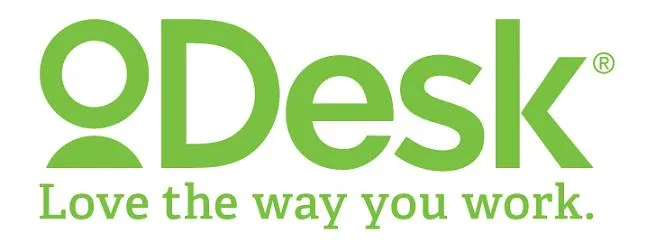 Startups on shoestring budgets often have to fake it till they make it. You might not bother ordering letterhead until you need it, for example, but at that moment, you might realize that you’d like to have a logo that is better than the one you hacked together in PowerPoint a few months ago. But contracting an expensive design agency is out of the question.
Startups on shoestring budgets often have to fake it till they make it. You might not bother ordering letterhead until you need it, for example, but at that moment, you might realize that you’d like to have a logo that is better than the one you hacked together in PowerPoint a few months ago. But contracting an expensive design agency is out of the question.
oDesk is a virtual marketplace I discovered about 8 years ago. I can see oDesk contractors’ performance ratings and payment history, I can cap hours and even see what they’ve been up to while “on the clock” via oDesk’s desktop screenshots. I’ve hired oDeskers for short projects and I have others that I’ve been using for years.
oDesk cost: Here’s just a few examples of what I’ve had done:
Uber and UberX: On-demand town cars and taxis
 Hailing a cab on the street? Please. Once I went Uber, I never went back. I love it because via their app I can hail a car from just about anywhere, at any time. I can see where my car is en route and know exactly when my car is pulling up.
Hailing a cab on the street? Please. Once I went Uber, I never went back. I love it because via their app I can hail a car from just about anywhere, at any time. I can see where my car is en route and know exactly when my car is pulling up.
Uber originally made a splash with black town cars and recently added UberX to their offerings. UberX lets riders hail hybrids and sedans for less than a town car.
There is no fumbling with cash or credit cards, or figuring out how much to tip. Payment and gratuity is handled automatically, so when I get to my destination, I just say goodbye and bounce. It’s a time saver that gets me to meetings or to my daughter’s music class performance.
Uber cost: Varies

I hate paperwork. We have NDAs for interviewees, contracts for salespeople. We receive paper forms that need to be filled out, then scanned, then emailed. Enter EchoSign. It makes the form completion and signature process faster and more efficient, for both the sender and the receiver. And yes, it’s all legit and legally binding.
I send W-9s with a couple of clicks, and they come back just as fast. I really get my money’s worth when there’s multiple signatures required. EchoSign tracks progress, sends reminders, and once executed the doc is instantly linked and filed properly. I can even copy our lawyer and he gets a fully executed copy as soon as the contract ink is “dry”.
Echosign cost: Starts at free for one user and 5 contracts/month. We pay $40 for the team plan.
Starting up a business takes precious time and money. These sites and apps have helped me get my business off the ground quickly, while allowing me to focus on the important tasks that my team is relying upon me to get done. What are the cheats and hacks you’ve found helpful in your journey?
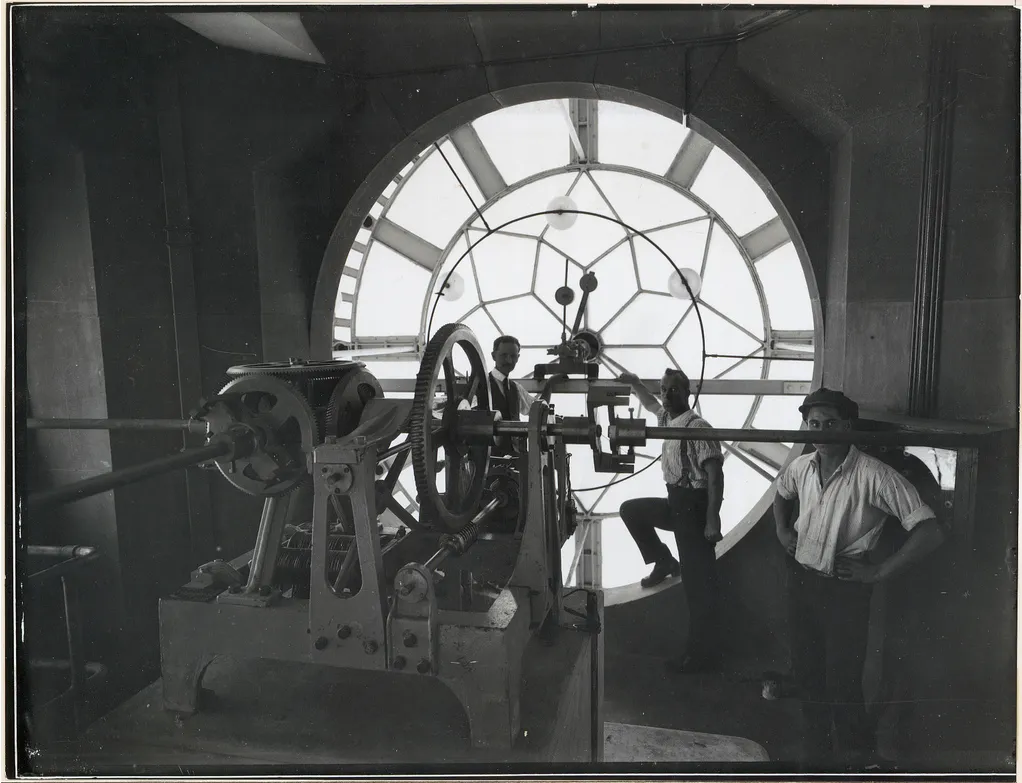 One of my favorite questions to ask people is, “How many hours a week do you work?” The answers tell us a lot about ourselves.
One of my favorite questions to ask people is, “How many hours a week do you work?” The answers tell us a lot about ourselves.
First, hardly anyone it seems, works a 40-hour week. We are all putting in a minimum, an absolute bare minimum, of 60 hours. The start-up folks? Oh, they’re working 80-hour weeks. Entrepreneurs? Yeah, 90, for sure. At least. Maybe 100.
You’re probably nodding your head right now. Yeah, you’re thinking. That’s right. I work around 90 hours a week.
Actually, if you’re reading this, I’m pretty sure you don’t work 90 hours a week. How can I be so sure? Well, if you’re working five days a week, that means you’re putting in at least 18 hours every day. You also have to sleep — I’ll give you at least 5 hours — eat, shower, get dressed, use the bathroom, and so on, so there’s no way you’d have time to read this post. We haven’t even figured in the time it takes you to get to and from work.
Maybe you’re super-committed to your job, and you somehow prioritize working weekends over living life. Even so, you’d still need to be working a minimum of 13 hours every day of the week to hit that 90-hour mark. Really? Seven days a week, you’re putting in 13 hours? Every day? Dude, I don’t even want to know what your marriage looks like.
I believe you work a lot. Just not as much — maybe not nearly as much — as you think you do. You’re probably at work 10-12 hours a day, 5 days a week. So that’s 50 - 60 hours that you’re in the office… but how much of that time is actually being spent on productive work?
I use a Fitbit to track how active I am during the day. When I first got it, I was sure I was walking the recommended 10,000 steps a day. I was wrong. The Fitbit device gave me a reality check: I was walking about 3500 steps daily. But once I started tracking my steps, I changed my behavior. I’d take twenty minutes to hit the treadmill, or take a walk outside to clear my head. I stopped hunting for close parking spaces and started walking to meetings whenever possible. I also found that walking during phone meetings and conference calls were easy ways to add a few thousands steps with almost no effort.
 If you’re not measuring the work you do, you’re guessing at how much you’re doing. And you’re probably wildly overestimating. Yes, even though you are thinking to yourself that even if everybody else in the world guesses wrong, you personally don’t, because you are awesome. You know that you put in 90 hours of solid work a week. You are certain.
If you’re not measuring the work you do, you’re guessing at how much you’re doing. And you’re probably wildly overestimating. Yes, even though you are thinking to yourself that even if everybody else in the world guesses wrong, you personally don’t, because you are awesome. You know that you put in 90 hours of solid work a week. You are certain.
You are wrong.
Let’s start by defining work. Sitting in front of a screen is not work. What you’re doing now, reading this post, is not work. You are not making money for your company by reading this post. You are not moving closer to your goals by reading this post. (Unless, of course, you goal is to read every word I’ve ever written. But I still don’t think that you can actually make money from that. Feel free to send me a detailed business plan to prove me wrong.)
Start using tools to track your work, and you’ll quickly see how much of your time is spent being productive — and how much is spent simply sitting in front of a screen. There’s a fantastic app that can track everything you do at your computer, and it’s called RescueTime. You can set it up in under two minutes, and you don’t have to do anything else — it just does its thing, quietly in the background. And then, once a week, the magic happens: RescueTime sends you a report that shows how you spent your time, how productive you were, and how you compare to other users.
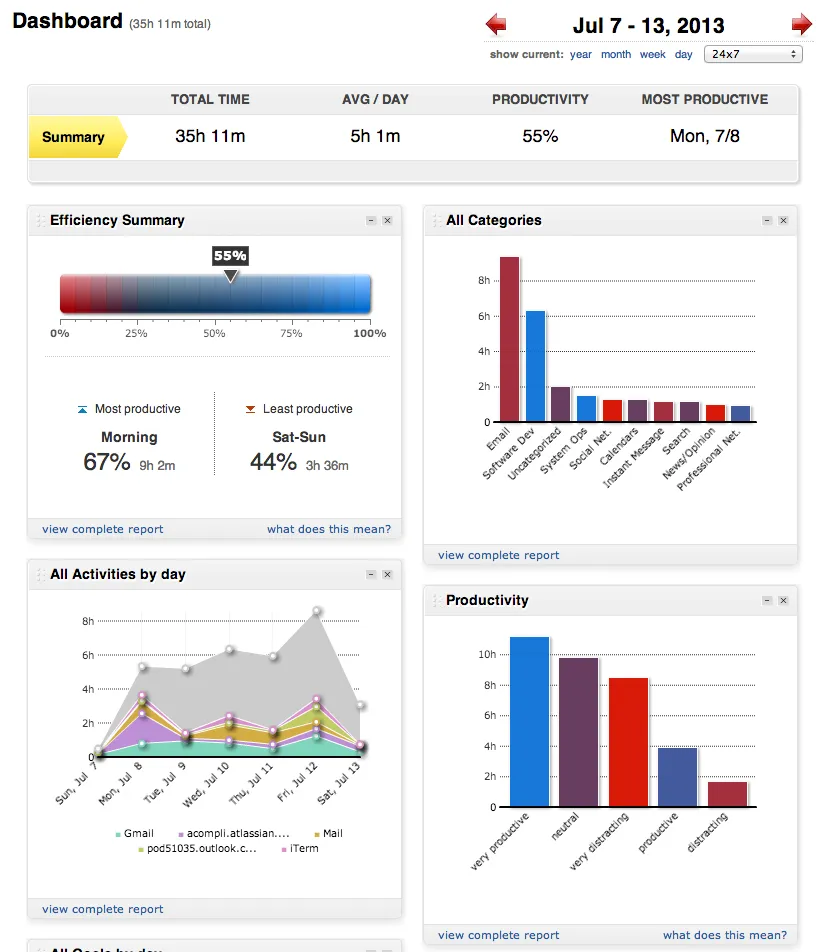
Prepare to be horrified. You will undoubtedly discover that you work far, far less than you think. You may even find that you are at the office significantly less than you thought. You leave home at 8, get to the office by 9, sit down at your desk at 9:30 (well, you have to grab coffee from the cart, check in with your project team, say hi to Joe and ask when you’ll be reimbursed for that trip you took last month… it all takes time), and leave for the day at 7. So that’s… Well, technically, that’s 10 hours in the office. But there was lunch. (That was a business lunch!) And on Thursday you had to go to your kid’s school thing, so you were out of the office for 3 hours. But that hardly ever happens. Except that last week, you had that dentist appointment, and that was as hour. Maybe an hour and a half. And the week before, the contractor came to review the plans for the kitchen demo.
The point isn’t to say that you shouldn’t do those things. Rather, the point is to make you aware of the time you spend at work, and the time you spend working (two different things, remember), and how much you get done in that time. If you’re consistently hitting deadlines and you’re actually only putting in 6 hours of work daily, maybe start planning your day around 6 hours of focused work. On the other hand, if schedules are constantly slipping, this exercise could show you why.
Once you’re tracking your time, you can start to change your habits. Because, at the end of the day, it’s what you do with this information that matters. If you choose to simply explain to me why you absolutely have to spend 18 hours a week on social media, you’re not going to make any real progress. As Neil Patel says, work on making improvements to get ahead.
Here are a few quick ideas:
Do you lose an hour and a half of work time every time you take a 30-minute lunch break (waiting for elevators, waiting in lines, getting back into the swing of things, and so on)? Make it a habit to eat lunch at your desk twice a week. Some middle of the day meetings are unavoidable — for example, your children’s school activities. But try moving other meetings to first thing in the morning or late in the afternoon so that you don’t have to interrupt yourself twice. Can’t figure out how to fit in a workout and work? Switch to a treadmill desk — at least for part of the day. If you’re losing time to simple, repeatable tasks that don’t require your expertise, learn to delegate and outsource effectively.
We’ll talk more in-depth about these ideas to recapture your time, your focus and perhaps your sanity— in a Part II to this post.